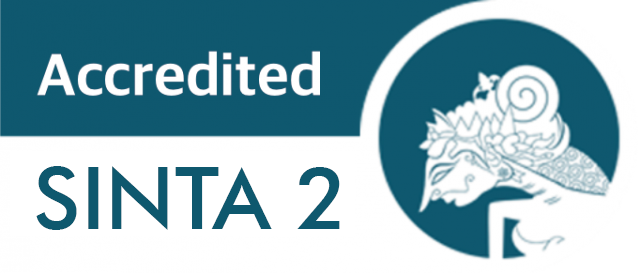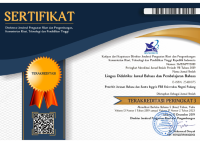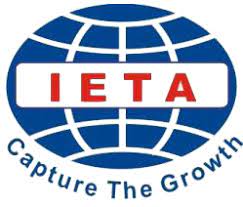Is Code-Mixing Needed in English Teaching Process?: EFL Teacher's Experience
 ),
), (1) Universitas Negeri Malang
 Corresponding Author
Corresponding Author
Copyright (c) 2022 Lingua Didaktika: Jurnal Bahasa dan Pembelajaran Bahasa
DOI : https://doi.org/10.24036/ld.v16i2.119289
Full Text:
 Language : en
Language : en
Abstract
This research investigates the EFL teacher's perspective of using code-mixing in EFL classes. The research design used narrative inquiry to uncover the story of the English teacher’s experience in using code-mixing, and a personal narrative was conducted by interview as the data. The results of the study indicate that: 1) the teacher's experience in teaching English which the teacher has many experiences in teaching at many different levels. 2) the teacher uses code-mixing because of the teaching method and the curriculum approach. The teacher needs code-mixing based on the student’s skills and the class circumstance.
Keywords
References
Agus Rahmat. (2020). Code Mixing in EFL Classroom: Views from English Teachers Side. Al-Lisan, 5(2), 130–147. https://doi.org/10.30603/al.v6i2.1323
Alhamami, M. (2020). Switching of language varieties in Saudi multilingual hospitals: Insiders’ experiences. Journal of Multilingual and Multicultural Development, 41(2), 175–189. https://doi.org/10.1080/01434632.2019.1606227
Bonyadi, A., Kalvanagh, M. K., & Bonyadi, M. (2021). Teachers’ Perceptions on Code-Switching in EFL Classroom Discourse. Discourse and Communication for Sustainable Education, 12(2), 45–53. https://doi.org/10.2478/dcse-2021-0015
Brice, A. (2000). Code Switching and Code Mixing in the ESL Classroom: A Study of Pragmatic and Syntactic Features. Advances in Speech Language Pathology, 2(1), 19–28. https://doi.org/10.3109/14417040008996783
Brown, K. (2006). Encyclopedia of language and linguistics. Elsevier.
Creswell, J. W. (2012). Educational research: Planning, conducting, and evaluating quantitative and qualitative research (4th ed). Pearson.
David, C. T., & Su-Hie, T. (2009). A Preliminary Study of Teacher Code-Switching in Secondary English and Science in Malaysia. TESL-EJ, 13(1).
Hoffman, C. (1991). An Introduction to Billingualism. Longman.
Jiang, Y.-L. B., García, G. E., & Willis, A. I. (2014). Code-Mixing as a Bilingual Instructional Strategy. Bilingual Research Journal, 37(3), 311–326. https://doi.org/10.1080/15235882.2014.963738
Kim, E. (2006). Reasons and Motivations for Code-Mixing and Code-Switching. TESOL Journal.
Li, D. C. S. (2008). Understanding mixed code and classroom code-switching: Myths and realities. New Horizons in Education, 56, 13.
Muysken, P. (2000). Bilingual Speech: A Typology of Code-mixing. Cambridge.
Nicoladis, E. (2012). Code Mixing. In C. A. Chapelle (Ed.), The Encyclopedia of Applied Linguistics (p. wbeal0141). Blackwell Publishing Ltd. https://doi.org/10.1002/9781405198431.wbeal0141
Novianti, R., & Said, M. (2021). The Use of Code-Switching and Code-Mixing in English Teaching-Learning Process. DEIKSIS, 13(1), 82. https://doi.org/10.30998/deiksis.v13i1.8491
Park-Johnson, S. K. (2020). Teachers’ Attitudes and Beliefs About Code-Mixing by Bilingual Students. Educational Studies, 56(2), 125–144. https://doi.org/10.1080/00131946.2019.1694026
Peregoy, S. F., & Boyle, O. F. (2013). Reading, writing and learning in ESL: A resource book for teaching K-12 English learners (6th ed). Pearson.
Ramadhaniarti, T., Arsyad, S., & Arono, A. (2018). CODE – MIXING IN ENGLISH CLASSES OF SMPN 14 KOTA BENGKULU: VIEWS FROM THE TEACHERS. JOALL (Journal of Applied Linguistics & Literature), 2(1), 22–33. https://doi.org/10.33369/joall.v2i1.5866
Siregar. (1996). Code Alternation in Billingual Speech Be- haviour. USU.
Sutrisno, B., & Ariesta, Y. (2019). Beyond the use of Code Mixing by Social Media Influencers in Instagram. Advances in Language and Literary Studies, 10(6), 143. https://doi.org/10.7575/aiac.alls.v.10n.6p.143
 Article Metrics
Article Metrics
 Abstract Views : 322 times
Abstract Views : 322 times
 PDF Downloaded : 107 times
PDF Downloaded : 107 times
Refbacks
- There are currently no refbacks.
Copyright (c) 2022 Lingua Didaktika: Jurnal Bahasa dan Pembelajaran Bahasa

This work is licensed under a Creative Commons Attribution-NonCommercial 4.0 International License.










